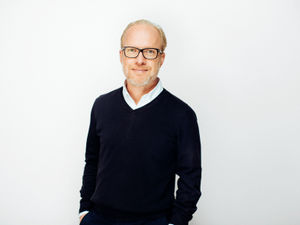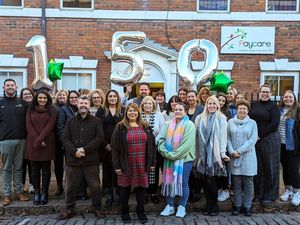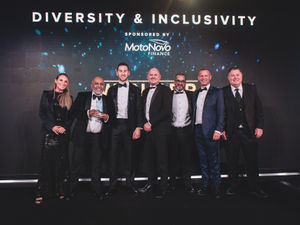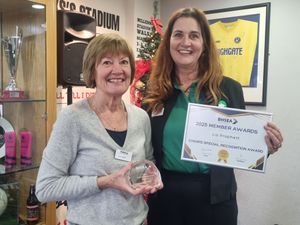Virgin trains, 20 years down the line
The corks popped, the champagne flowed. Richard Branson was in ebullient form, promising a revolution in train travel, with tilting trains, faster journey times and improved punctuality. And the name of the first train to travel through the West Midlands under the Virgin banner was revealed: Mission Impossible.
"We've chosen the name as we face a tough task, but we know we can do it," he proclaimed boldly. No-one could ever accuse the tycoon of underselling himself.
It is 20 years since Virgin Trains took over inter-city services on the West Coast Main Line, which links the West Midlands to London in the south and Liverpool, Manchester and Glasgow in the north. The then plain Mr Branson – his knighthood was another three years away – had won the first franchise to operate express services along Britain's busiest main line under then prime minister John Major's controversial privatisation programme. And the tycoon was promising to revitalise the rail industry in the same way he had shaken up the aviation industry some 13 years previously, pledging to carry over the same approach to customer service that his airlines had been renowned for.
It is an anniversary which very nearly didn't happen. Five years ago Sir Richard threatened to walk away from the industry altogether, after being told that his franchise on the West Coast Main Line was not being renewed. But three months after awarding the new franchise to rival bidder First Group, the Government made a sensational U-turn after admitting that the bidding process had been flawed. First Group's franchise was cancelled, and Virgin was reinstated on an interim basis.
Natasha Grice, who has recently taken over as Virgin Trains' regional manager for the West Midlands, recalls it as being a dark time for the company's staff.
"We had just had a fantastic summer, we had just had the Olympics, and it had all gone really well, there was a huge feelgood factor around the country, and we were part of that," says Mrs Grice, who began her career in the railways as a customer services assistant at Birmingham New Street station.
"And then we were told we were losing the franchise. People felt like they were grieving, people were crying."
Sir Richard points out that a petition, launched by passengers who wanted to see Virgin retain the franchise, had been signed by 175,000 people.
Over the past 20 years, Virgin has taken passengers on 458 million journeys, travelling 334.5 million miles.
The impossible mission that Sir Richard referred to in 1997 was to increase passenger numbers from 15 million to 30 million. When the feat was achieved eight years later, Sir Richard named one of its new fleets of tilting Pendolino trains Mission Accomplished.
But it hasn't all been plain sailing.
Back in 1997, Sir Richard had pledged that 90 per cent of trains would run on time, but the following year Virgin Trains was rated the least punctual rail operator in the country.
In 2001/02, 31 per cent of trains were late, although it the company could justifiably claim some mitigation at having inherited an ageing rolling stock from British Rail, and also suffering from disruption caused by Railtrack's work to modernise the line.
Back in 1998, Sir Richard admitted that the teething troubles had tarnished his brand.
"I’ve definitely been cursed by delayed passengers on the West Coast line a lot and I’m genuinely sorry, but what I do know is that we’ve got our best team in there and they are doing a fine job in getting it right," he said.
“With British Rail we’ve taken on the scrap yard and we’re having to sort it out. But the light at the end of the tunnel is not far away.”
Even the celebrated Pendolino trains, which have done much to reduce journey times, could not be used to their full potential. Upgrades to the line were supposed to have allowed them to travel at 140mph by 2005. However, the collapse of Railtrack, which was responsible for the management of the rail network, and the inability of its state-owned successor Railtrack to deliver the improvements, meant that the new hi-tech trains were limited to a maximum speed of 125mph.
Sir Richard points out that delivering the required changes was always going to take time. And indeed, he can now point to the latest report from the National Rail Passenger Survey, which recorded 90 per cent customer satisfaction, and 88.3 per cent of trains running on time.
"The first decade was about getting the obvious things right, for example a reliable fleet that was fit for the new millennium, shorter journey times and more services to the UK's biggest cities," he says.
"The next stage was about spearheading a customer experience revolution, by empowering our employees to provide a unique and personalised level of service."
Mrs Grice, who began her career as a flight attendant on Virgin's airline some 21 years ago, says the company has brought the same approach to customer service from the aviation industry to the railways.
She says that before Virgin took over the line, the emphasis had been simply on meeting government timetable targets rather than trying to make the customer happy.
"It's no good running a train on time if the customer experience is bad," she says.
"You have to make the customer enjoy the experience.
"For example we now have a shop on board, I know there used to be a buffet car in the days of British Rail, but we now take the trolley down standard class as well as first class.
"We now have free wi-fi on board, and the customers can download movies and television programmes."
She says the increased frequency of services between major cities – up from two to three an hour – has also made a significant difference, particularly for people who may need to change trains and would otherwise have spent more time waiting around between connections.
The new twice-daily direct rail link from Shrewsbury to London, via Wellington, Telford and Wolverhampton, has also been a resounding success since its launch in December 2014, attracting 87,000 passengers in its first year, increasing to 93,000 in its second.
But while a major increase in passenger numbers is unquestionably good news, it has also led to complaints of overcrowded trains, particularly at peak times. In the long-term, the HS2 link will free up capacity along the West Coast Main Line, but is also expected to cause some disruption while the project is carried out.
Mrs Grice says the company tries to manage crowding by controlling the number of tickets it sells, although she says it is important to ensure that people will always be able to turn up on the day and buy a ticket.
"It's important that people can just decide on the day that they want to take a trip to Shrewsbury or London, without having to book up in advance," she says.
"I think it's an important part of what people expect from the railway, it's not like booking a flight."
Virgin also points out that since taking over the route it has lengthened 31 of its trains to 11 coaches, and increased the size of its fleet from 52 to 56 trains. The company has also introduced the Automatic Delay Repay scheme, which automatically compensates those who buy tickets through its websites if their trains are delayed by half an hour or more.
The present franchise for the West Coast Main Line is due to expire in 2019, and the next contract will also include the London-Birmingham stretch of the controversial HS2 high-speed link. While the bidding process does will not begin until the autumn, Sir Richard hints that he very much wants to be part of it.
"The popularity of our services has ushered the way for a new and exciting chapter of transport history," he says.
"HS2 will be one of the largest infrastructure projects in the UK since the Second World War, and the West Coast franchise will work in partnership with it to ensure its success.
"We look forward to being a part of this new age of rail."





